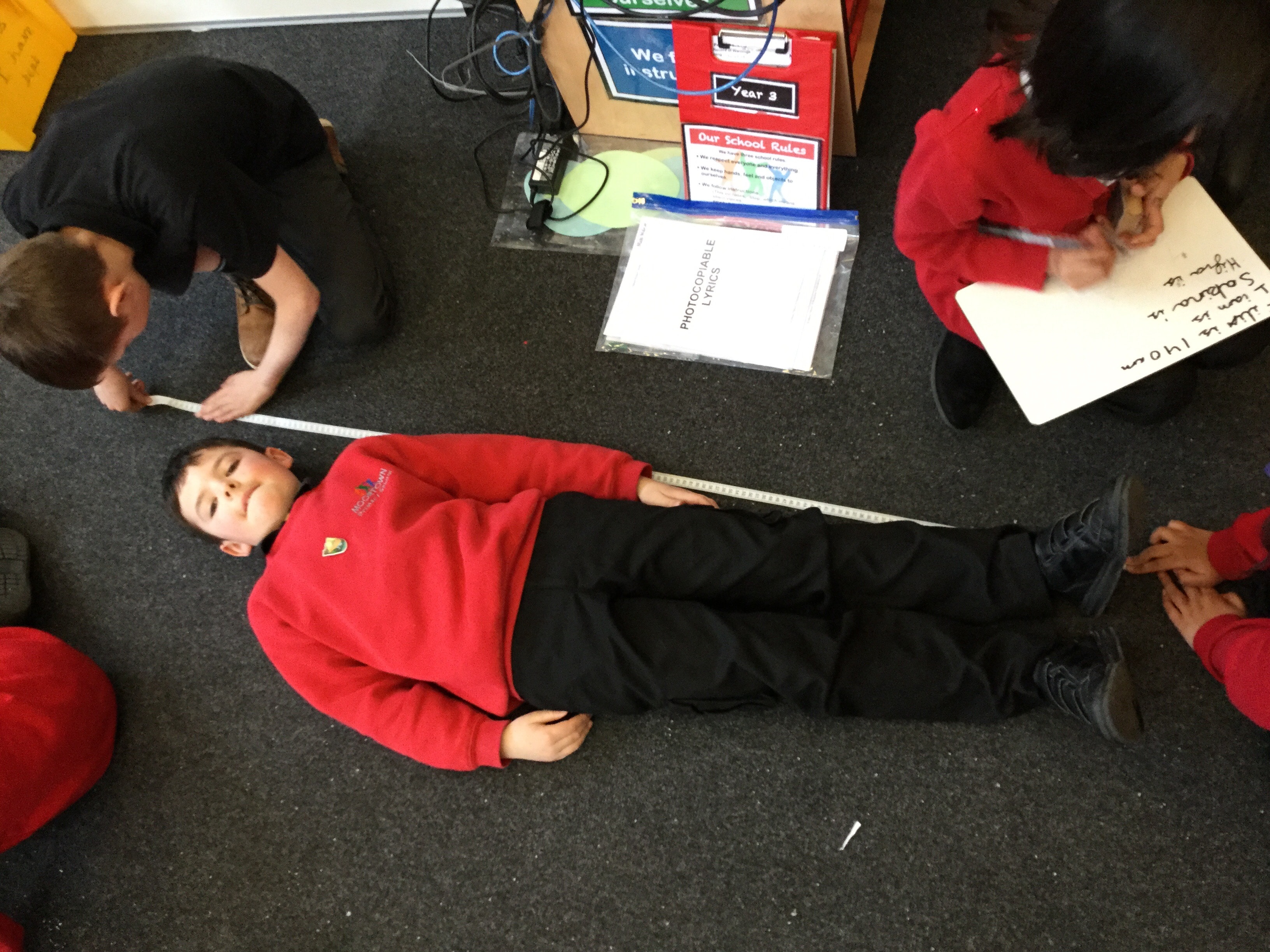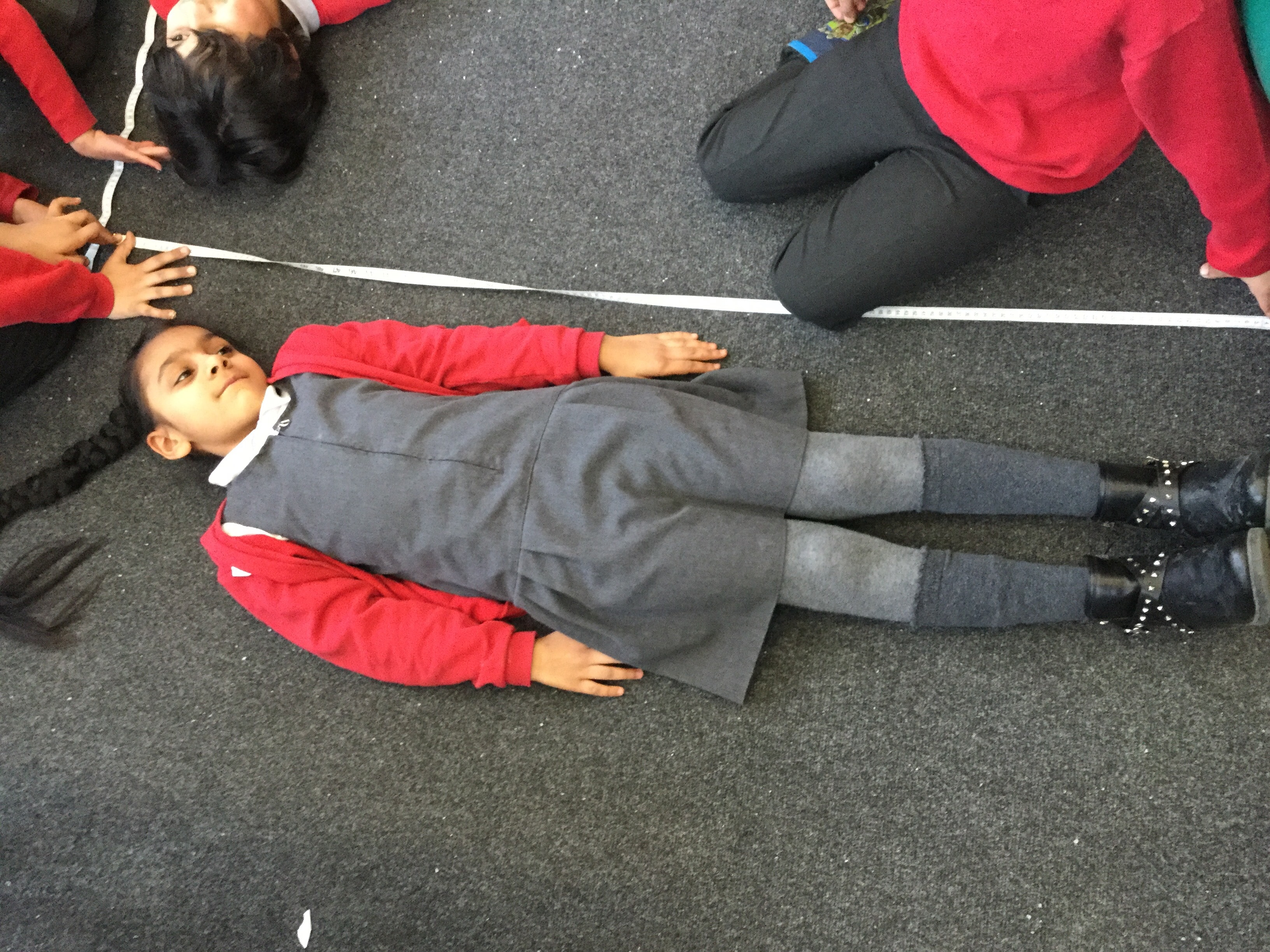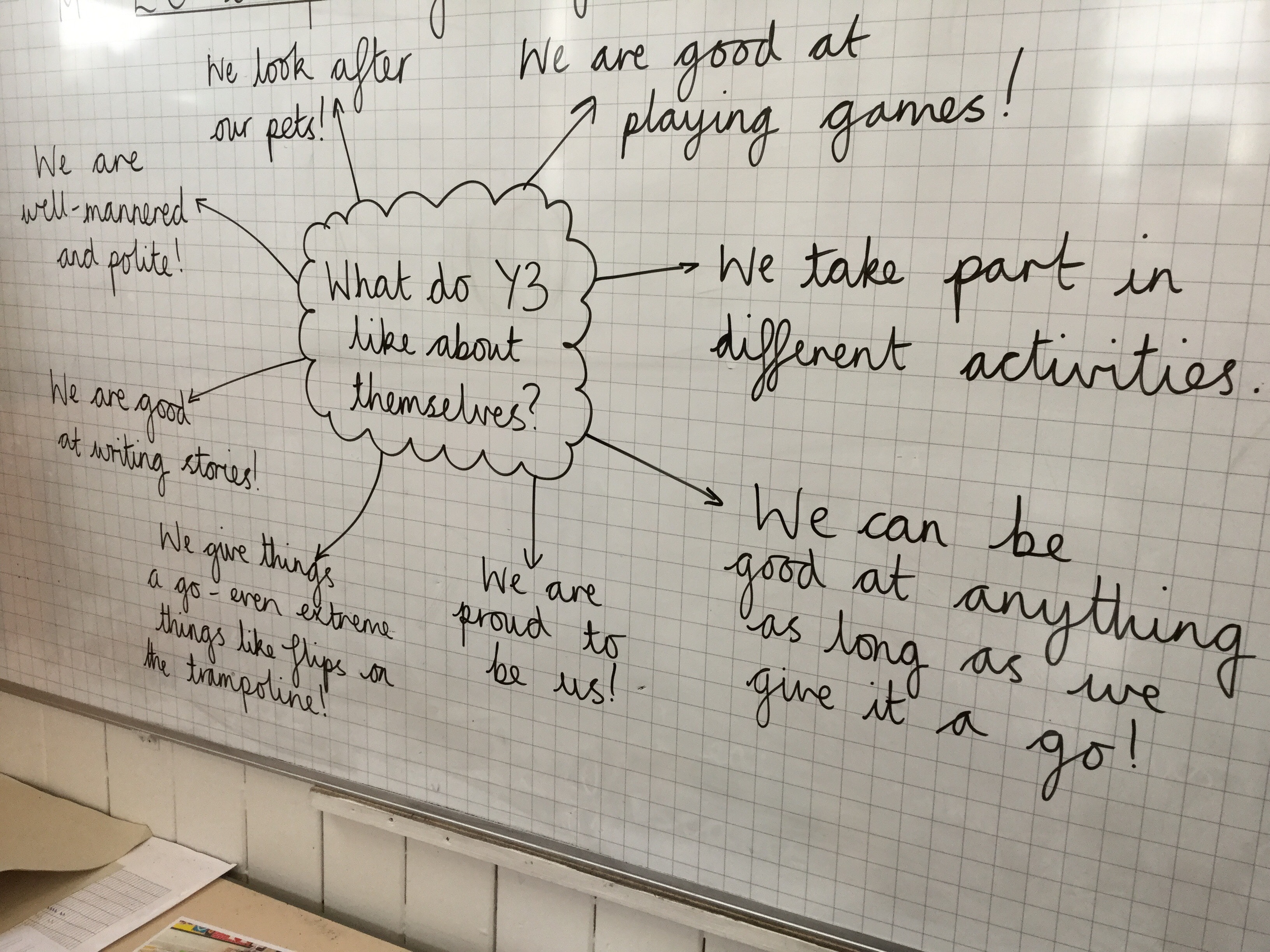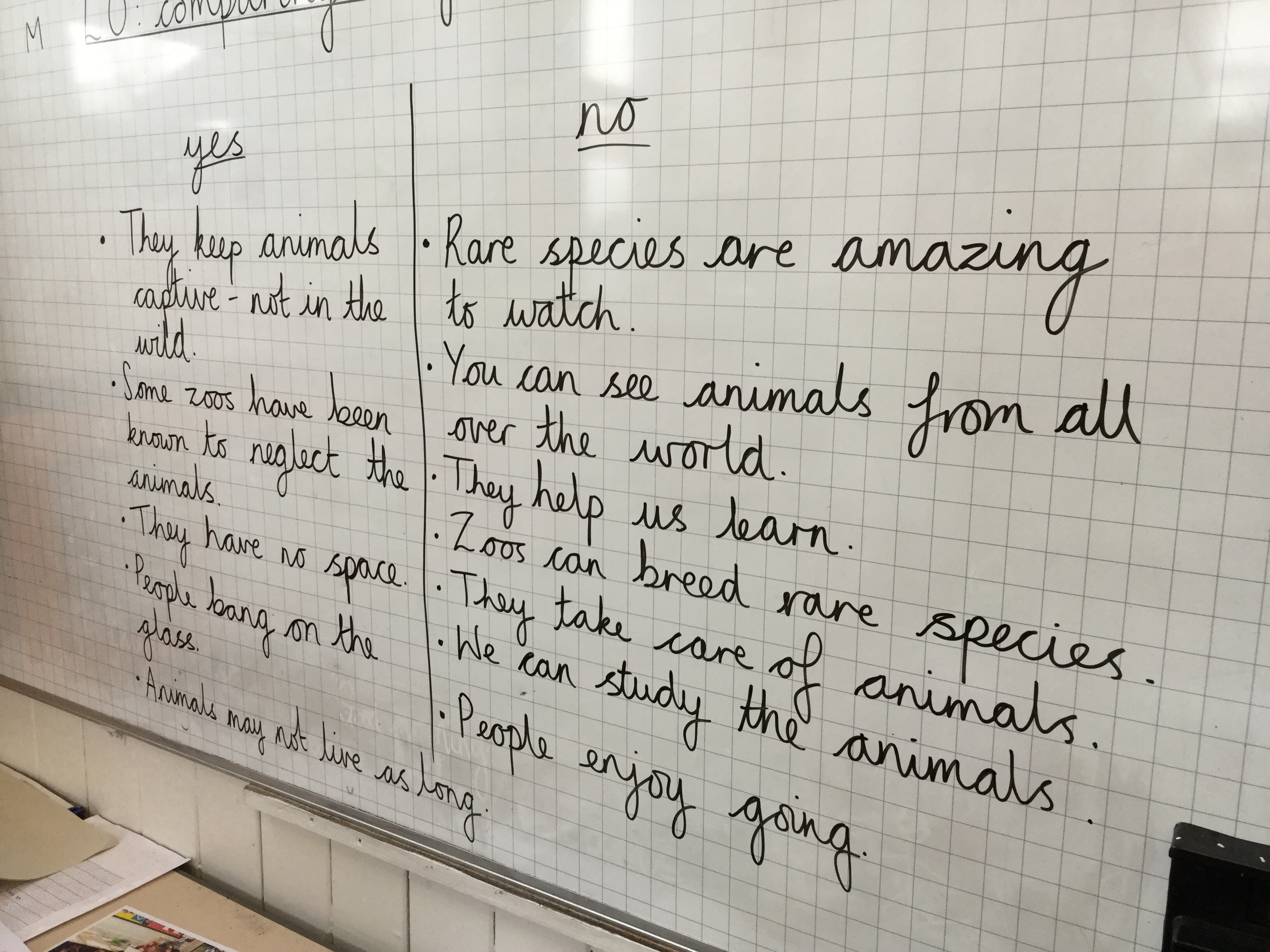Football Coaching
Our football coaching continues but I’ll pass straight on to the press officers to inform you of what we got up to.
Written by Hibba: In this session we started off in our groups practising dribbling, passing and tackling. Later in the session, we played 4 corners – the confident players playing each other and the less confident players playing each other. As always we had our rolls: Hibba was press officer; Aleena was the manager; Megan was the coach; and Edward was the kit manager and the physio.
Written by Isobel: In PE, we have continued playing football. Today we focused on tackling. Nico set up a drill which helped us with tackling, passing and dribbling – skills we learnt previously. At the end, we played four corners -with six corners. You number yourselves and if your number is called you go out and try to score in other team’s goals. If your goal is scored in you’re out. You win if you’re the last one left.
Written by Pippa: In P.E today, Year 6 continued their football skills. We learnt tackling and did a bit more on dribbling. Near the end of the lesson, everyone played a game of four (or six in our case) corners. In this game, we numbered ourselves one to five with one the least confident and five as the most. For our group, Archie was at five, Noah at four, Phoenix as three, Zack as two and Pippa (me) as one. Archie was the manager, Noah was physio, Phoenix was kit manager, Zack was coach and Pippa was press officer.
Written by Oliver: In football today we carried on our football skills ( tackling ). In training, my group played a tackling and interception game to help us . Then we moved on to four corners where you have to score in each other’s goal . Last person standing wins.
Written by Matteo: In Year 6, we continued our football skills and played a game called 4 corners. In 4 corners, you have to number yourself and the coach will call out a random number and they will try to score in everyone’s nets and the last person wins.
Written by Pavan: Today in PE we continued our lesson about football and today we focused on tackling. Stanley, kit manager; Nishaan, coach; Grace, physio; Abdullah, manager; and Pavan, press officer. First, Grace lead a warm up to get our heart beating and to stretch our muscles. Then, it was followed by Nishaan, our coach and we started off by setting a drill which Stanley made for us . Abdullah was our manager and I definitely saw some good tackling skills from him.
Living and learning – body image
This afternoon, we continued to think about ‘Being Me’. In particular, we focussed on body image. After defining what body image is, we discussed how some people (according to some research as much as 50% of young people) have a negative view of their body image.
We learnt that this could be influenced by a range of external factors: the media, our friends, our family, our culture, our religion, our role models, advertisements, the TV and famous people. Then, we created a ‘diamond nine’ of how these things affect us.
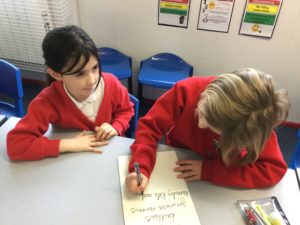
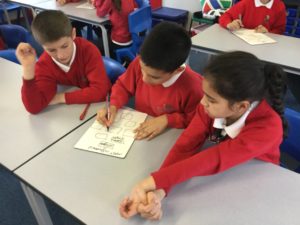
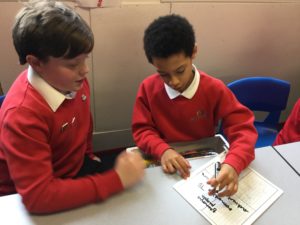
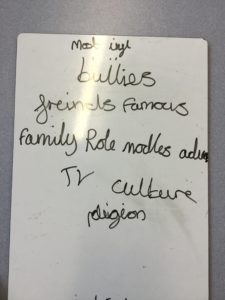
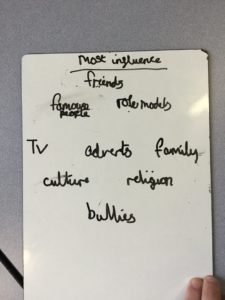
Focusing on how the media may affect how we view ourselves, we watched this video and discussed the impact changing the way someone looks could have on others.
We then thought about someone who is special to us and wrote down all the things that make them special. We noticed that hardly any of them were related to the way they looked.
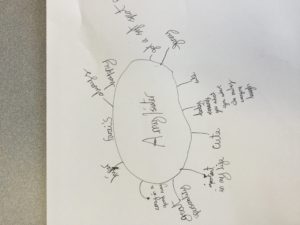
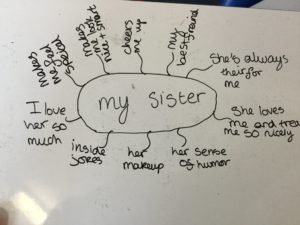
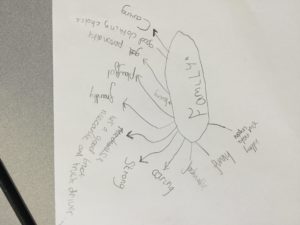
After this, we thought about what makes us special and celebrated how good it is to be us. Finally, we summarised our learning in one sentence:
- Albert: ‘It doesn’t matter what you look like – it matters about your actions.’
- Josh: ‘It’s good to be me.’
- Isaac: ‘It doesn’t matter who you are or what you look like, just be you!’
- Theo: ‘It doesn’t matter what you look like, we’re all the same.’
- Martha: ‘I’ve realised that it doesn’t matter what we look like. I don’t care what people think – THIS IS ME!’
- Sachpreet: ‘No matter who you are, just be yourself.’
- Grace: ‘I can be myself and I don’t care what other people think – it matters what I think!’
- Kai: ‘Don’t be afraid of who you are!’
How is our support helping?
As part of our on-going support for mountain gorillas, last week, Year 4 received the latest update from the WWF charity.
| Welcome to your latest gorilla adoption news.
I hope The Year 4 is enjoying being a gorilla adopter, and learning more about these unique-looking, intelligent animals whose future you’re now a part of. Here’s your latest update on just how your support is helping. Together, we shared this information. The children had lots of questions. “What can be done to save these creatures?”
“What place do they have in the food chain?” |
| WHY MOUNTAIN GORILLAS MATTER |
| Gorillas, like all animals, play an important role in their ecosystem. Without the gorillas, which are large-scale grazers, eating a variety of vegetation, the natural balance in the food chain would be disrupted. This could negatively affect other wildlife, their habitats, and ultimately the people who depend on that environment for food, water and other resources. |

Year 4 are enjoying learning about these and other endangered animals. We have stories, leaflets, reports and lots of data in our reading area to further our knowledge of the amazing work done by the WWF.
“If we don’t look after these animals, then people in the future will never see them in real life!” commented Gurnoor.
Year 4 are learning lots of new vocabulary throughout of current topic of ‘Life Forces‘ and it has been great to hear them use these new words in their questions.
Here are some examples:
- extinct
- endangered
- habitat
- ecosystem
- vegetation
- environment
- life cycle
- nutrition
- predator/prey
- adaptations
- poaching
- conservation
- community
- threatened
- carnivore/herbivore
- reforestation
- vulnerable
…and many more new words.
Question your child about these words. Can they give you a definition? If not, can they find out how and where to get a definition from?
We constantly remind the children about using the internet for research safely.
Is all information online reliable?
Not all of the information you find on the internet is true because anybody can write anything they want to online.
Make sure you always compare the information you find online with other websites, books, or people who might know to make sure it is true. Use the 3 Website Rule.
Remember, when using the internet for research, use trusted child-friendly sites.
Stay safe online!
KS1 trip to Yorkshire Wildlife Park
Here are a few reminders about our trip on Monday.
- Children should come to school in their uniform
- Warm, waterproof clothes with a hat and gloves should be worn as it is an outdoor attraction
- Come in suitable footwear for walking
- A packed lunch, including a water bottle, should be brought in a bag/rucksack that the children can carry while we are there
- No money is needed
- Please arrive at school promptly as we will leaving at 9am
Have a look at the Yorkshire Wildlife Park website to find out some of the animals we will see.
It’s been perfect weather for some of the animals at the park this week.

Production
I’m sure you will agree – this week has been a fairly tricky one! It was great to see the majority of the children return to school today.
Over the next few weeks, Year 3 and 4 will be very busy rehearsing for their production. This takes place in the last week of term. We’d like all the children to learn their lines and the songs. Next week, your child will bring home a letter informing you of the costumes they will need for their part. Please don’t worry if you can’t provide some items. However, it would be much appreciated if you can search through your wardrobes and help us with this.
So far, the singing from both classes has been superb and we’re really looking forward to the children putting on a good show for us all to enjoy!
Many thanks.
Comparing heights
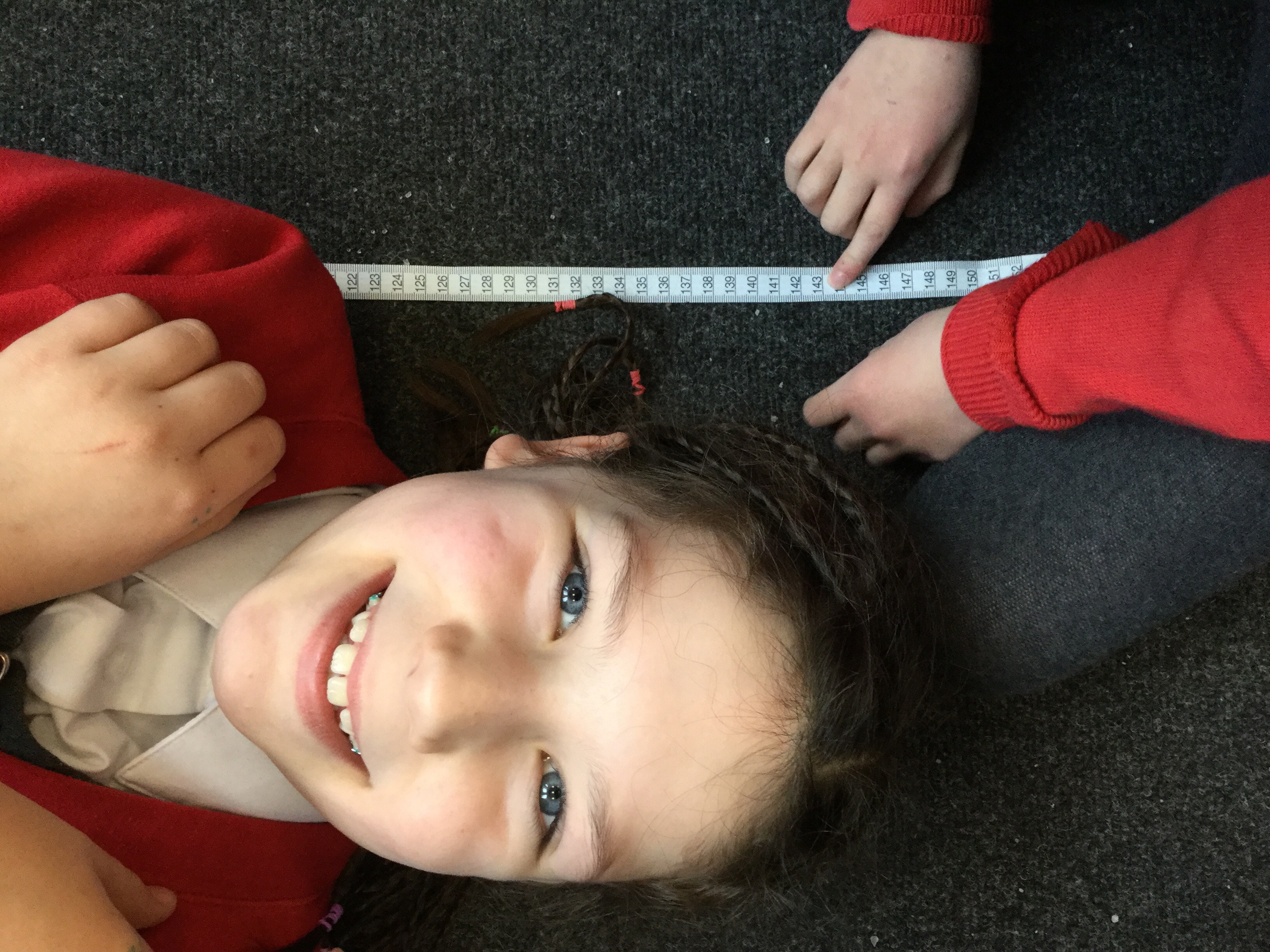
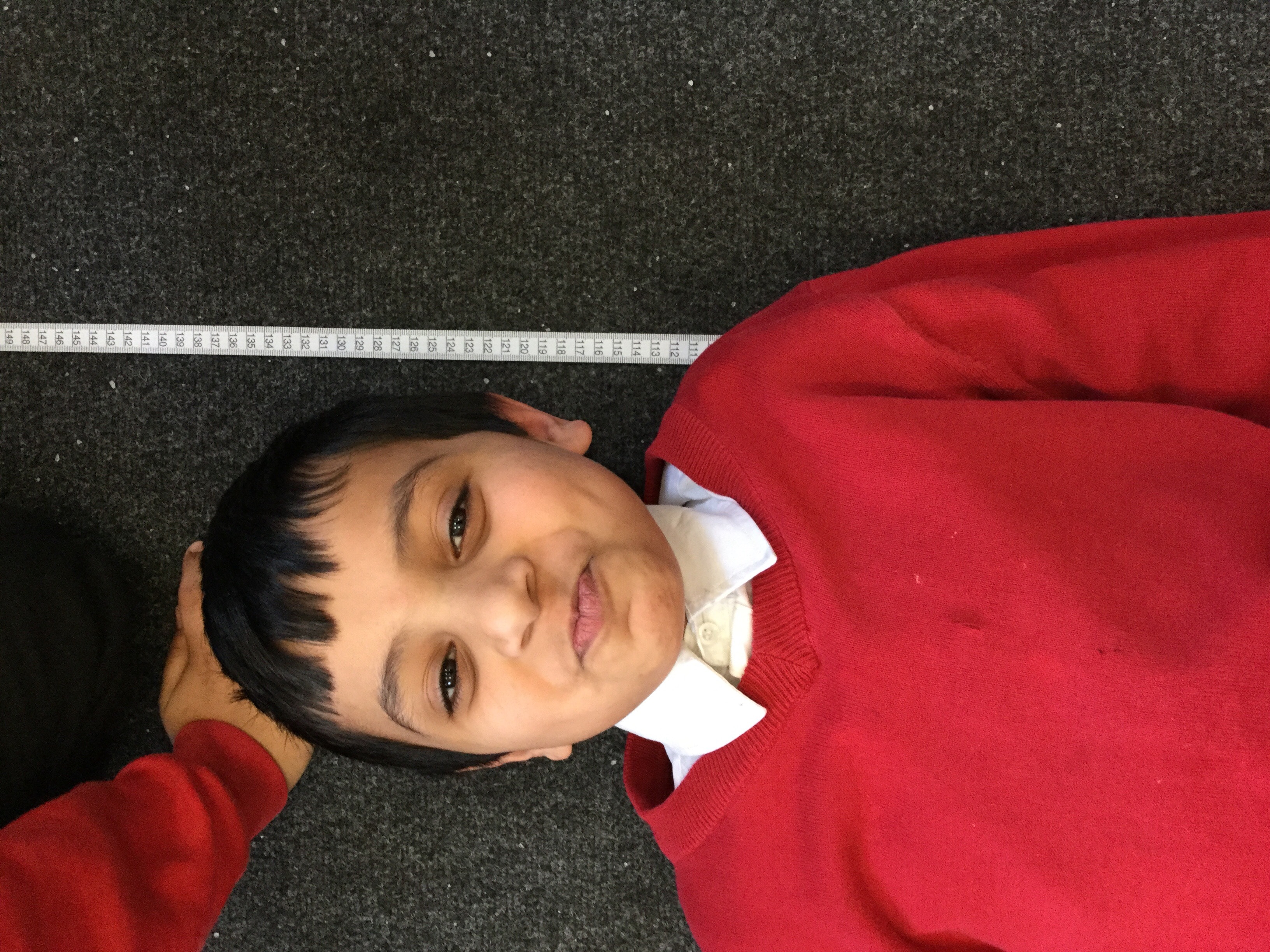 Today in maths, we had fun finding out how tall we are! We practised saying our height in different ways. For example:
Today in maths, we had fun finding out how tall we are! We practised saying our height in different ways. For example:
“I am 1m and 26cm tall. I am 126cm tall,” said Jasraj.
Isabella said, “I am 1m 46cm or 146cm tall.”
We linked our measuring back to the equivalent lengths we looked at earlier in the week.
For example, 500cm is the same as “5m,” said Leo, and “5000mm,” said Jemima. (I really liked that answer.)
Here are some photos of us measuring our heights, making sure the tape measure started at the very bottom of our heels or the very top of our heads.
Living and learning – I can say something good about myself.
What do Y3 like about themselves?
This week’s living and learning theme was all about saying something good about ourselves.
At Moortown, we strive to be confident in our abilities and comfortable in our own skin.
During our circle time this week, we discussed what was good about ourselves and each other. Take a look at the main themes that came up below:
“I am good at anything as long as I work hard. I’m really proud of myself,” said Rayn.
Should zoos be banned?
Well done to all of Y3 for engaging brilliantly with this week’s Talk Time homework.
Even though there were people who believed in one side of the argument only, they were able to understand and give points for the other side, too. Everyone listened and waited for their turn to speak.
We had a really interesting discussion in class. Overall, we voted that we thought zoos should not be banned.
Take a look at the table below. Can you spot something you had spoken about at home?
Should zoos be banned?
Year 2 skipping festival
UPDATE Thursday 01 March – due to the weather, the event has been cancelled for tomorrow and will be rearranged. Therefore we’ve more time to practise skipping – maybe tricky in the snow though!
We’re all gearing up for the skipping festival organised by Skipping School on Friday morning. The children have all been assigned a skipping skill for the event and have amazed us with how they’ve improved their skills since the start of the project.
On Friday, we need to leave school at 9:00am prompt so please ensure your child is at school for registration at 8:50am. Children can come into class from 8:45am.
Here are some other reminders:
- Children should come to school in PE kit (long sleeved top and bottoms would be preferable as the event is in a sports hall). Remember: no earrings.
- Uniform should be brought to school for children to change into when we return to school
- All children need to bring a packed lunch to have as we return to school
- Ensure your child has their water bottle at school that day
- We will be taking a fruit snack with us to have during the morning

